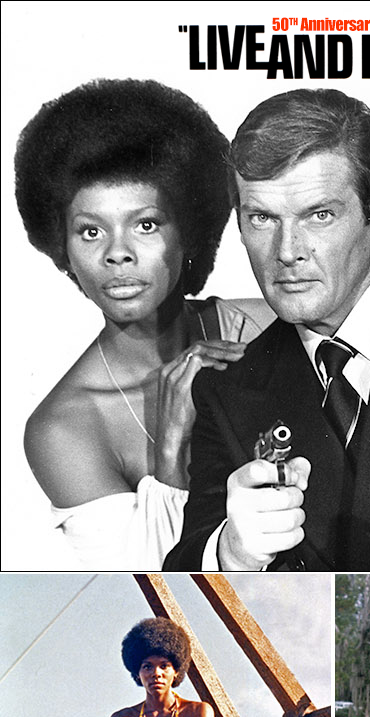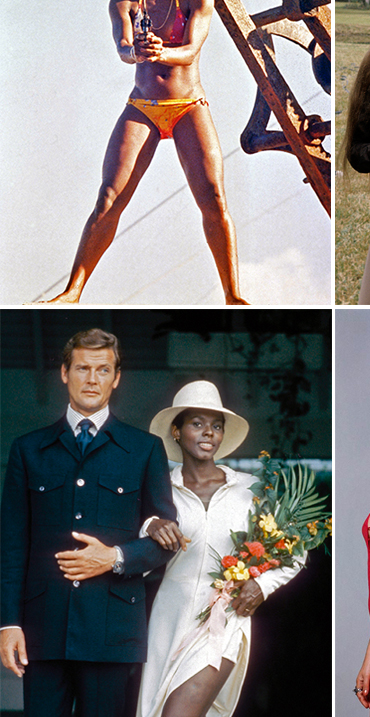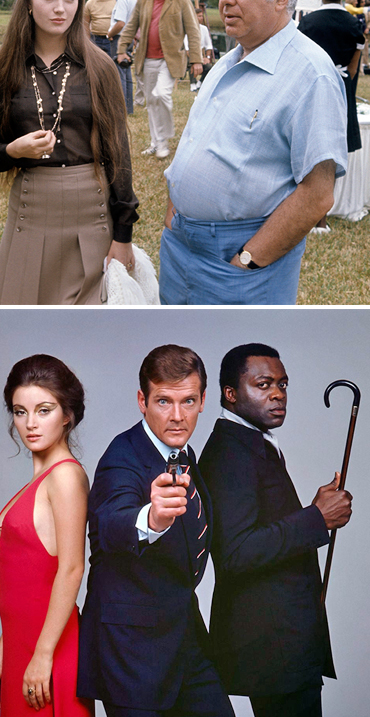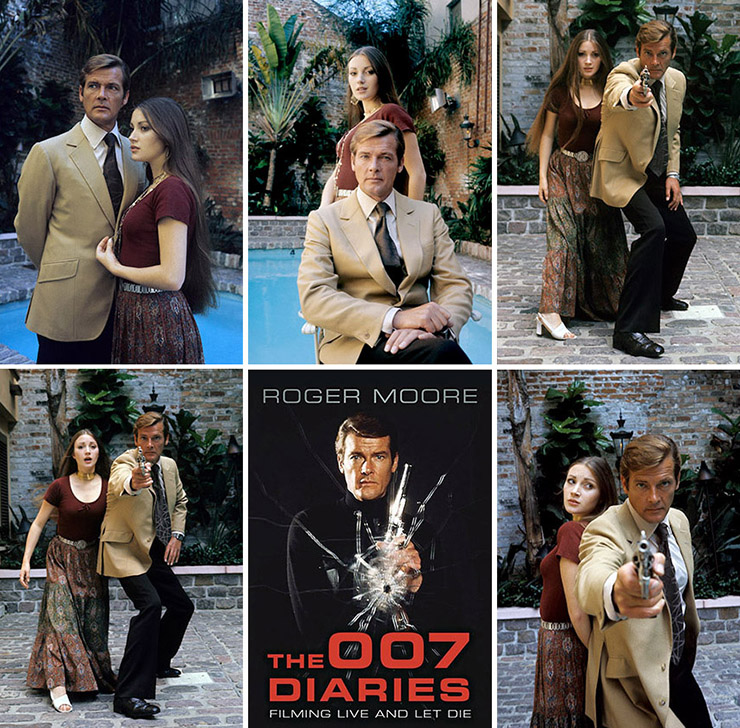 |
 |
 |
 |
|
ABOVE: BOND GIRLS
ARE FOREVER! (top) Gloria Hendry and Jane Seymour co-starred
opposite Roger Moore in his debut as James Bond in Live And Let
Die (1973). Gloria Hendry had worked as a PLAYBOY Bunny at the
New York PLAYBOY Club from 1965 until 1972, and later appeared in
several 1970s ‘Blaxploitation’ films, including Across 110th
Street (1972) [which starred Yaphet Kotto pictured above right
with Jane Seymour and Roger Moore], Slaughter's Big Rip-Off
(1973), films Black Caesar (1973) and its sequel Hell Up
In Harlem (1973). She also portrayed the martial arts expert,
Sydney, in Black Belt Jones (1974). Appearing in Live
And Let Die as CIA double agent Rosie Carver - James Bond's
first African American love interest, and posing as ‘Mrs. Bond’
when the two first meet in San Monique. Jane Seymour had begun her
career with small roles in Oh! What A Lovely War (1969) and
Young Winston (1972), both directed by Richard
Attenborough. Seymour would marry Richard Attenborough's son
Michael in 1971. Prior to landing the lead role of Solitaire in
Live And Let Die at the age of 22, Seymour [pictured above
centre right with Live And Let Die co-producer Harry
Saltzman on location in Louisiana] had a leading role in the popular BBC television series
The Onedin Line (1972–1973). After Live And Let Die,
Jane Seymour played the key role of Agatha/Prima in the two-part
British TV movie Frankenstein: The True Story (1973), and
in 1980 starred opposite Christopher Reeve in the romantic
fantasy/drama Somewhere In Time, which earned her a Saturn
Award nomination as Best Actress. From 1993 to 1998, Seymour
starred as Dr. Michaela Quinn in the US television series Dr.
Quinn, Medicine Woman, earning her two Primetime Emmy Award
nominations and four Golden Globe nominations, winning once in
1995. |
|
 |
|
ABOVE: Jane Seymour
and Roger Moore pose for more publicity photographs on location in
New Orleans. In The 007 Diaries, Roger Moore's account of
filming Live And Let Die he remembers:
Following the
Fillet of Soul scene, Jane and I agreed to pose for pictures
for Anwar [mis-spelled Akhtar] Hussein, a photographer who was in something of a
panic because he was leaving the following day and had not got
the standard two shots of Jane and me together with me looking
suitably protective pointing my gun. The problem was we had no
gun. The twenty-five carried by our property department were 15
miles away and locked in a warehouse, and by the time they could
be brought over the light in the French Quarter Inn courtyard,
where the session would be shot, would have failed. David Dagley,
who was covering for West Germany’s Bravo magazine,
desperately wanted a similar shot. Dan Slater was caught in the
publicist’s dilemma of having artists available on the one hand,
photographers frantic for a specific shot on the other, but
without indispensable props; in this case the gun.
The only gun in sight in the French Quarter was slung on the hip
of a young point duty policeman, and discussion revealed that,
with his sergeant’s permission, the policeman, with typical
Southern hospitality, was quite happy to loan his gun on
condition we borrowed him as well. After a street search, the
sergeant was found and gave the go-ahead. The policeman strolled
into the French Quarter Inn courtyard smiling, took the bullets
out of his Smith & Wesson .38 police special, which happens to
be one of the guns I use in the picture, and sat down sipping
coffee for half an hour watching, while Jane and I worked with
the photographers.
|
|
 |
 |
|
|